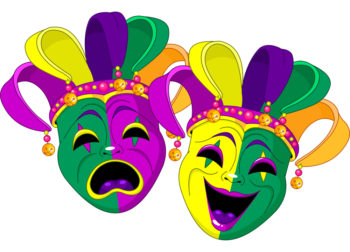Broadway as Mediation Training Ground: Act I
{4 minutes to read} Most people know the basic plot behind West Side Story, which in turn was based on the Shakespeare play Romeo and Juliet. The Jets and the Sharks are teenage gangs at each other’s throats. The Jets are white, mainly the sons of Polish or Italian immigrants, while the Sharks are recently arrived, resented immigrants from Puerto Rico. Both gangs are young, hormone-driven, and infected by the stereotypes of time immemorial. They don’t realize they’re fighting the same battle for respect and dignity. Throughout, there is coded language used to inflame, and inevitable miscommunication because they’re unable to see their common interests until it’s too late — like what happens in many conflicts.
Good theater, whether comedy or tragedy, is based on conflict. If there’s no conflict, who cares? And without conflict, there would be no need for mediation. We’d just all work things out ourselves — but we don’t.
Great plays, or TV shows, or movies, involve the ability or inability to resolve conflicts. Comedies for the most part have happy endings where the parties have worked things out. In tragedies, they don’t. In either, there needs to be enough tension to keep an audience engaged. One thing common to the tragedies is the failure or inability of people to communicate about what is bothering them.
If you pick apart most tragedies, you could find numerous points where if you stopped the action, one could write a script where conversations would take place that could avert the tragic ending. In a mediation, the mediator is trying in real time to stop the action and modify what might otherwise be blocked or unhelpful communications, substituting questions, comments, or ideas that can lead the parties in a different direction. A successful mediation does not mean the parties kiss and make up, though occasionally that may happen. Rather, it limits the conflict from festering further at great cost to the parties.
Most people may not recall the show Bells Are Ringing, a wonderful 1950’s musical focusing on a woman — Ella — who has an answering service (no cell phones back then) so people won’t miss important phone calls. Among other things, she also takes bets people place on horse races and transmits them to a bookie. A police inspector, with some suspicion of what’s going on, stops by one day to inquire, and Ella says the following:
Inspector, let’s go back a few thousand years.
If there had been answering services then, and if it had been up to me,
I could have changed the course of history.
I could have prevented many a famous tragedy….
Why, every night I lie awake, and my cheeks grow soaking wet,
When I think of what I could have done for Romeo and Juliet.
“Hello, Verona-Phone. Oh, yes, Mr. Romeo! Juliet Capulet called.
The message is: ‘To avoid getting married to other fellow, am playing dead.
Friar Laurence gave me a great big sleeping pill, but when I
wake up, we’ll head for the border.’
Oh, don’t thank me, it’s all in a day’s work.”
See what I could have done?
Maybe I’m right,
Maybe I’m wrong,
But if I got that message through on time, I’m telling you,
THOSE TWO KIDS WOULD BE ALIVE TODAY!!!
(“Is It A Crime?” from Bells are Ringing, Lyrics: Betty Comden & Adolph Green; Music: Jule Styne)
Mediation can open lines of communication so the conversation that might have taken place does take place.
More after our intermission.
 |
Gary Shaffer Shaffer MediationGary@ShafferMediation.com |

